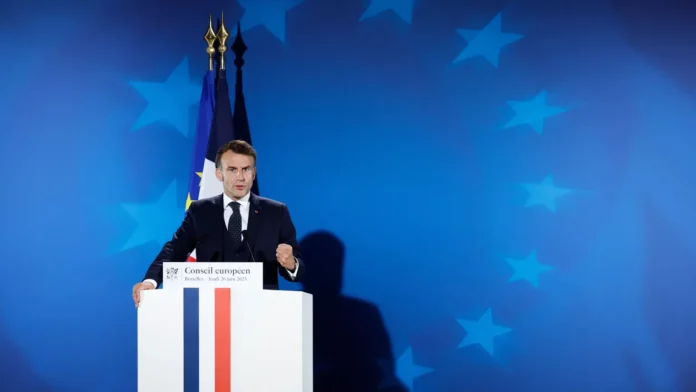
Paris/Moscow – July 2, 2025: French President Emmanuel Macron and Russian President Vladimir Putin held their first phone conversation in nearly three years on Tuesday, signaling a tentative renewal of dialogue over the war in Ukraine and Iran’s nuclear programme.
The call, which lasted two hours, was described as “substantial” by the Kremlin and marked a significant diplomatic development amid a protracted geopolitical standoff.
According to a statement from the Élysée Palace, Macron initiated the call, urging a ceasefire in Ukraine and the start of negotiations to end the war, now in its third year.
The French president reaffirmed France’s “unwavering support for Ukraine’s sovereignty and territorial integrity,” reiterating that only Kyiv has the authority to decide whether to cede any territory.
Putin, for his part, repeated his long-standing position that the conflict in Ukraine stemmed from Western policies that had “ignored Russia’s security interests.”
The Russian president insisted that any eventual peace agreement must take into account “new territorial realities,” a reference to Russia’s annexation of parts of eastern and southern Ukraine. He argued that a settlement should be “comprehensive and long-term.”
While the leaders have had no direct communication since September 2022, they maintained frequent contact early in the war, including a visit by Macron to Moscow in February 2022. However, diplomatic dialogue between the two had largely frozen in the months following.
Tuesday’s call also touched on Iran’s contentious nuclear programme. The Kremlin stated that Putin defended Iran’s right to pursue peaceful nuclear development in line with its obligations under the Nuclear Non-Proliferation Treaty.
Macron, in contrast, emphasized the need for Tehran to fully cooperate with the International Atomic Energy Agency (IAEA).
The Élysée noted that Macron expressed his “determination to seek a diplomatic solution” that would resolve concerns over Iran’s nuclear ambitions, its missile program, and its broader regional activities.
Tensions with Iran have escalated sharply since Israel and the United States launched strikes on three Iranian nuclear sites in June, prompting Iran’s parliament to suspend cooperation with the UN nuclear watchdog. Tehran maintains that its nuclear activities are peaceful and not aimed at weapon development.
Despite stark differences in their views, both Macron and Putin agreed to continue discussions on both Ukraine and Iran.
The renewed contact suggests that while deep rifts remain, Paris and Moscow may be exploring potential diplomatic off-ramps in two of the world’s most volatile crises.